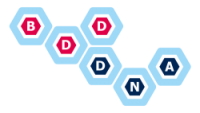Integration of BDD with DevOps and Agile
BDD’s emphasis on collaboration and continuous feedback aligns seamlessly with DevOps and Agile practices. The future of BDD lies in its integration with these methodologies to create a holistic development ecosystem. By combining BDD with DevOps and Agile, teams can achieve faster delivery, improved quality, and enhanced customer satisfaction.
Expansion of BDD Beyond Traditional Software Development
While BDD has primarily been applied in traditional software development, its principles can be extended to other domains. The future of BDD involves its application in areas such as AI development, IoT, and data science. By incorporating BDD into these domains, teams can ensure clear requirements, effective communication, and validated behaviours in complex and evolving systems.
Evolution of BDD Tools and Frameworks
As BDD gains popularity, the tools and frameworks supporting its implementation are expected to evolve. The future of BDD will witness advancements in automation tools, integration capabilities, and reporting mechanisms. These improvements will enhance the efficiency and effectiveness of BDD practices, making it easier for teams to adopt and benefit from this methodology.
Integration of AI and Machine Learning in BDD
The rise of AI and machine learning presents an exciting opportunity for BDD. The future of BDD involves leveraging AI and machine learning techniques to enhance test automation, generate test scenarios, and validate system behaviour. This integration will enable more intelligent and adaptive testing, leading to improved software quality and efficiency.
Enhanced Collaboration and Communication
Collaboration and communication are the cornerstones of BDD, and their importance will continue to grow in the future. As development teams become more distributed and diverse, BDD will facilitate effective collaboration through virtual collaboration tools, real-time communication platforms, and enhanced knowledge-sharing practices. The future of BDD will emphasize the need for seamless teamwork and cross-functional alignment.
Continuous Evolution and Adaptation
The future of BDD lies in its continuous evolution and adaptation to changing industry needs. BDD practices will continue to evolve to address emerging challenges, such as privacy, security, and ethical considerations. The community-driven nature of BDD ensures that it will remain relevant and responsive to the evolving demands of the software development landscape.
Conclusion
The future of Behaviour-Driven Development (BDD) is promising and transformative. Its integration with DevOps and Agile, expansion into new domains, evolution of tools and frameworks, integration with AI and machine learning, enhanced collaboration and communication, and continuous evolution will shape the future of software development. By embracing BDD and its future advancements, development teams can build high-quality software, foster collaboration, and meet the ever-changing demands of the digital era. BDD’s customer-centric approach will continue to drive innovation and ensure the delivery of software that truly meets user needs in the years to come.


